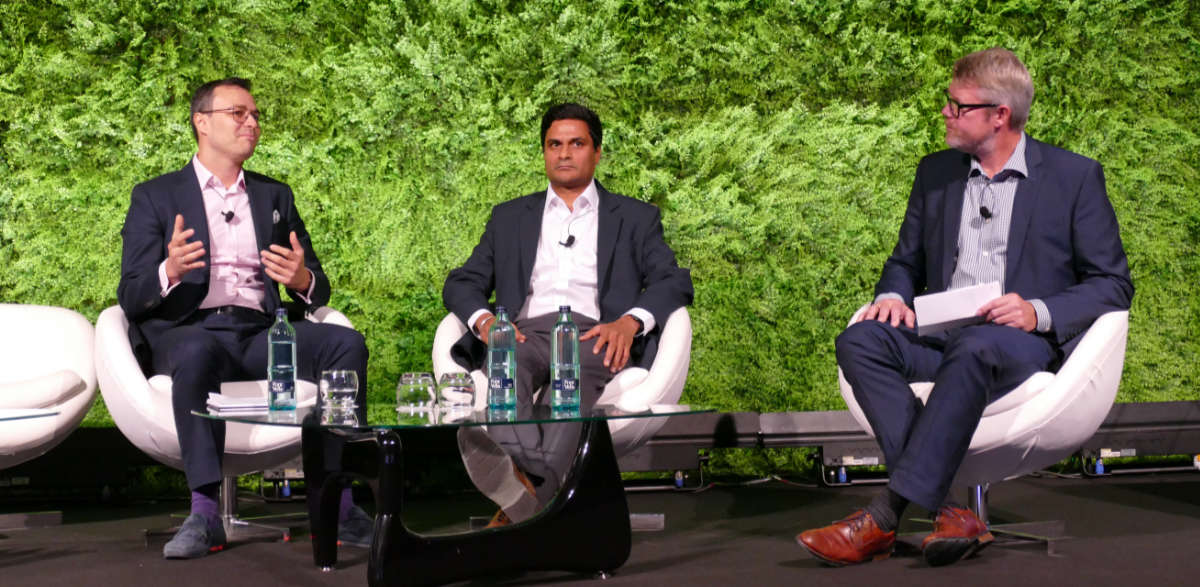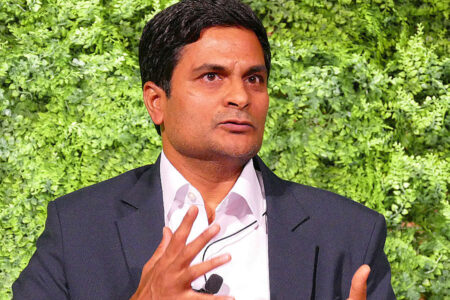 In a discussion on the potential future impact of AI on financial markets, particularly fixed income, Venky Vemparala of FlexTrade and Plamen Mitkov of Yield Book told Carsten Just, formerly head of fixed income trading at Nordea, that while advances are being made, the human touch is still important.
In a discussion on the potential future impact of AI on financial markets, particularly fixed income, Venky Vemparala of FlexTrade and Plamen Mitkov of Yield Book told Carsten Just, formerly head of fixed income trading at Nordea, that while advances are being made, the human touch is still important.

What impact will generative AI have on financial markets, and how can you get your desk ready to reap the rewards was the topic of conversation on the morning of Day Two at FILS Europe 2023, and the answer might reassure you. “It’s very important to have a lot of controls and systems so that every time there is a response, it returns the source of the response,” stressed Mitkov. “At least at the start, a human and the AI need to work together, so there is always someone checking. There is also a strong need for experienced people who know the risks, konw the opportunities, and can check the results thoroughly That’s the way that we have to start. We are not being replaced. There needs to be a read-only guardrail.”

“Until these techniques and models advance further, the focus needs to be on helping the trader be more efficient,” agreed Vemparala. “Then we can build beyond that to be semi-automatic, but for now, the key function is sanity checks.” That is not to say that there aren’t enormous opportunities, just that controls need to be applied. “We’re going to see so many more use cases, because everyone in this room is thinking about it,” said Mitkov. “However, although ChatGPT off the shelf is excellent, out of the box I don’t think it’s that useful in finance. It has to be put in place using the right architecture.”
One use case is fast and easy data retrieval. Another is automated reporting, which is beneficial due to the heavy compliance burden that reporting poses for most firms. Knowledge-based systems such as documentation, manuals and so on are another area of progress. Large language models (LLMs) in the long-term could be a possibility, but this is more of a challenge in fixed income due to its foundation in numerical rather than alphabetical data – however, even here, progress is on the horizon.
“A use case that we’re working on is a system where the large language model actually helps interpreting the results from a numerical model, and finds scenarios that are not covered,” explained Vemparala. “But the lowest hanging fruit is to use ChatGPT to configure trade ticketing, and use it for sanity checks. Traders have a lot of APIs, and they have to use a lot of custom coding to stitch them together. ChatGPT can help to translate a trader’s query and map that.
“There’s an overload of data, and you have to translate that and input them – a ChatGPT model can help to create a summary that you can action.” There are of course concerns around the security of data, but Vemparala believes that this is not actually the crucial issue. “Client’s data is strictly firewalled,” he says. “It’s actually more about the right inferences being made on the data, rather than the data falling into the wrong hands. Every client’s data is separate, there is no security issue from that perspective.”
To progress further, however, he believes that a more open data-sharing initiative is needed. “The industry needs to come up with some sort of open-source data sharing model,” urged the panel. “If you want to go the last mile, we would benefit from using all data, sharing that data to move forward.”
©Markets Media Europe 2023
©Markets Media Europe 2025

























